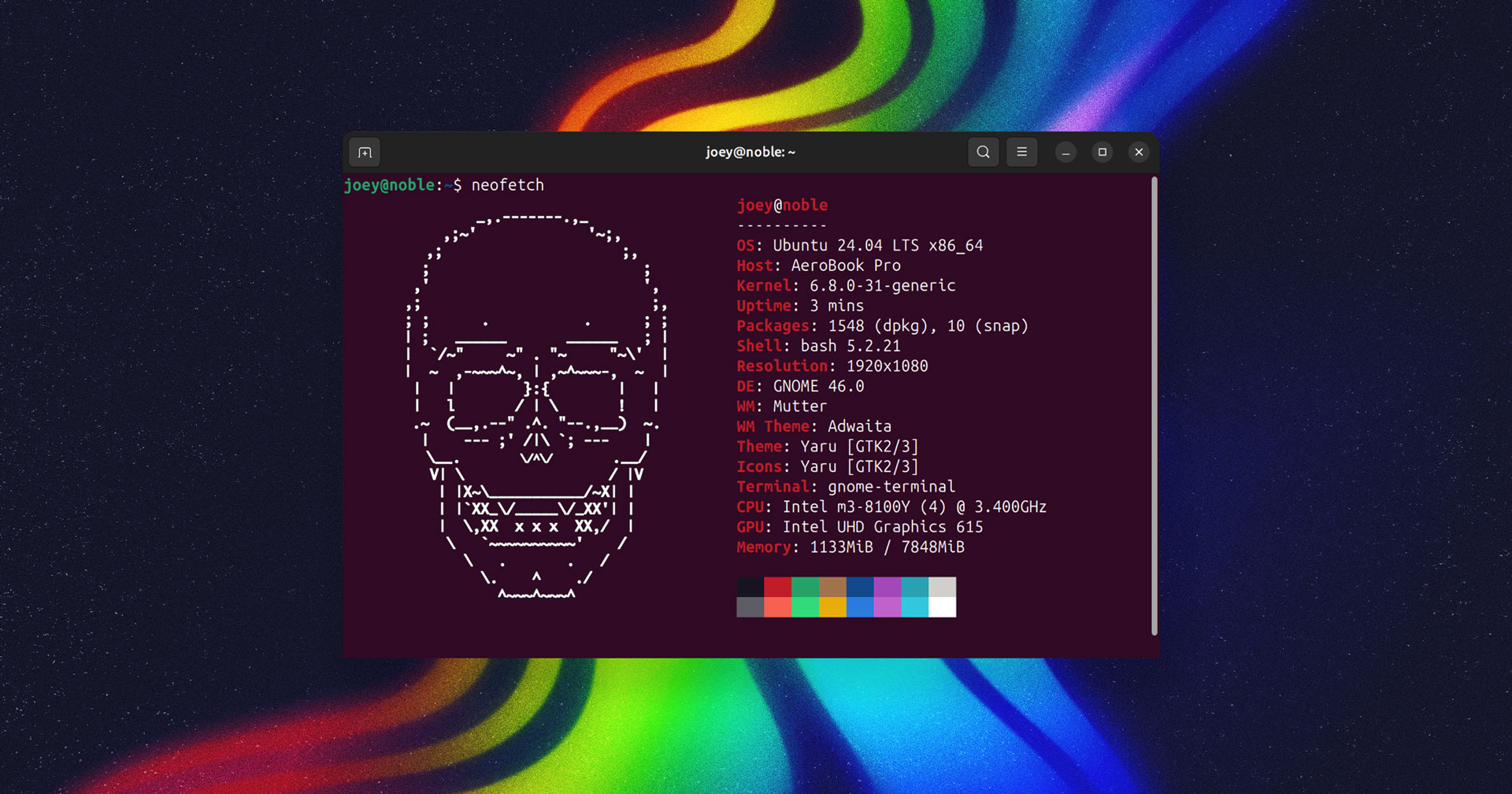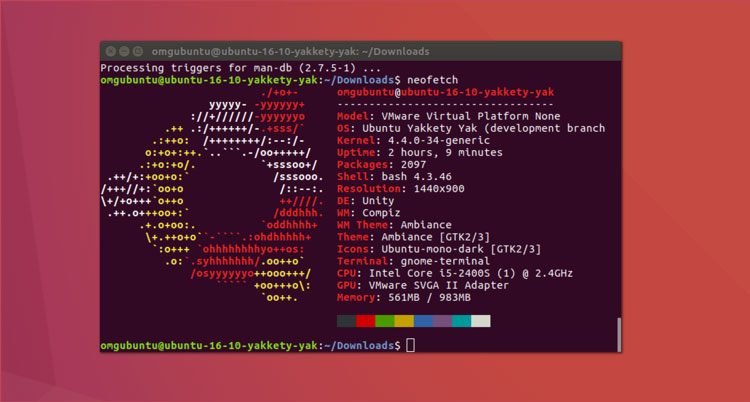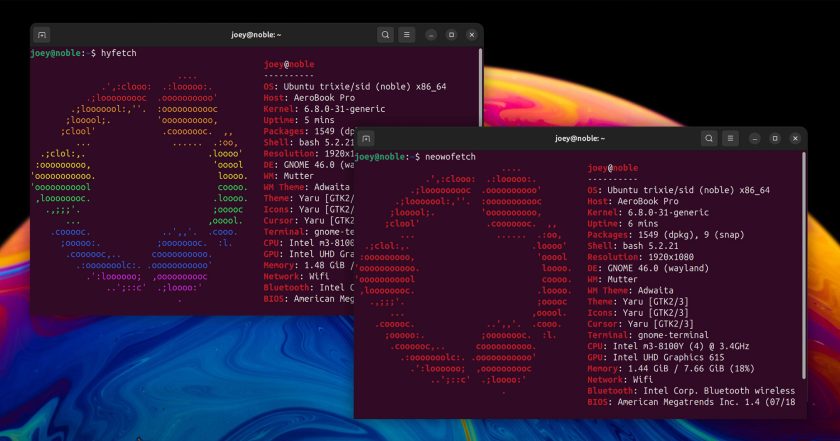It seems that the popular command-line system info tool Neofetch is dead, Jim.
The Github repo for the project was archived by its main developer last week and is now read-only, a sure sign that development has well and truly ceased to be.
Not that this is a shock. Development on Neofetch seemed to stall a few years back as bug reports piled up, pull requests were ignored, and the developer stop replying. The last update to Neofetch was made in 2020.
I’m a big fan of Neofetch and have used it on all my installs since discovering it in 2016, showcasing it in scores of screenshots on this site and sneaking it in to my Ubuntu release videos. So naturally Neofetch made my list of the best Linux command-line tools.
Neofetch prints a static list of a computer’s key hardware specs and software packages next to a large, colourful ASCII OS logo. Informative and eye-catching, Neofetch has become a staple in Linux desktop screenshots shared online.
So even if you’ve never used Neofetch yourself you’ll surely have seen it somewhere at some point.
While though a myriad of other ‘fetch’ tools (as they’re called) predate it, Neofetch was arguably the most well-known and widely used fetch tool in the Linux community and carried in the archives of most major Linux distros.
But is this really the end?
NeoFetch alternatives
Development on Neofetch appears to have ended but the tool continues (and will likely continue) to work printing pretty-looking system stats on Linux, BSD, macOS, Windows, WSL, Haiku, your mum’s fridge, and everywhere else it runs.
But without ongoing development the tool will, in time, relay less-accurate info (some folks already report that newer CPUs and GPUs aren’t listed correctly). New distros appear, others evolve, some rebrand, new codenames emerge, and so on.
As an open-source project though nothing ever truly dies. Forks of Neofetch already exist as do similarly-purposed fetch tools from other developers. If you use Neofetch often you may wish to look into these alternatives.
The one I see mentioned most often is HyFetch, a direct fork of Neofetch and actively maintained. It’s also packaged in the Ubuntu 24.04 LTS archives making it an apt install hyfetch away from obligatory overuse.
HyFetch displays info using Pride-themed colour schemes by default (it’ll ask you to choose your preferred Pride flag when first run) but you can see an OS-based colour scheme by running neowofetch instead — same tool, same info, different colours.
Other fetch tools are also out there so feel free to explore.
H/T Dominic Hayes



